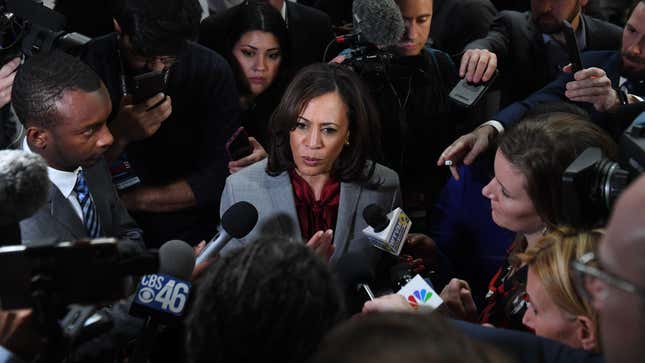

Kamala Harris is a black woman living in the United States, so the assertion that racism or sexism couldn’t have possibly factored into negative perceptions of her is absurd. But I’m unconvinced that misogynoir alone sunk her presidential campaign. And I’m alarmed that the hurdles black women go through are being weaponized—especially by white liberals—to deify Harris in the aftermath of her presidential run. So naturally, both of the aforementioned are happening on social media and in editorials, where discourse on the end of Harris’s 2020 presidential run sounds increasingly alarmist.
An op-ed in The Independent called the “Kamala is a cop” meme racist because it held her record to a higher standard than her white primary challengers. Salon lamented the online backlash Harris and her loyal fans received from nasty Bernie Bros and the red rose emoji brigade. Human Rights Campaign’s Charlotte Clymer said that Harris’s campaign was “meaningful to countless Black women” and scolded those who were gloating over its demise. News of Harris’s dysfunctional campaign was derided as a racist hit piece. Media commentator Avis Jones-Deweever told CTV that she suspects Harris received disproportionately negative press, which doomed her campaign, and worries about what her treatment means for the next black woman who will run for president.
-

-

-

-

-

-

-

-

-

-

-

-

-

-

-

-

-

-

-

-

-

-

-

-

-

-

-

-

-

-

-

-

-

-

-

-

-

-

-

-








































